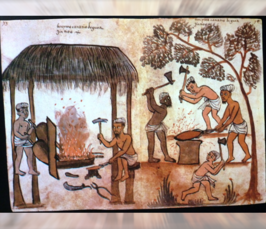We learned of a lecture series on
Norms and Empires at the MPI in Frankfurt.
Norms and Empires Lecture Series
In the course of the 16th
century, religion, empire, and trade built up networks that made the world more
interconnected than at any previous point in history. The world’s oceans began taking
over traditional land routes in their importance for moving goods, peoples, and
communications. The Iberian empires, Portugal and Spain, played an important
role in this process, connecting Europe, Africa, Asia, and the Americas through
the Atlantic, the Indian, and the Pacific oceans, constructing between them a vast
territorial reach. In these interconnected spaces, the normative
representations of settlers, missionaries, and imperial agents collided with
local normativities, forming a process of normative production and reconfiguration
that took on different paths in different places. Drawing on the complexities
in normative construction involved in this process, the Glocalising Normativities
project seeks to combine a global perspective on legal history with local case studies
based on detailed analysis of archival sources to understand how norms produced
in the different spaces that were part of the sphere of influence of one of the
Iberian Empires. The Norms and Empires Lecture Series invites leading
historians in the field of imperial history to reflect on the issue of
normative production in light of their own research experience.
Tuesday, October 8, 2019,
17:00-19:00
Federica Morelli (University of
Turin)
Between Citizenship and
Foreignness. Free People of Color during the Age of Atlantic Revolutions
Tuesday, November 5, 2019,
17:00-19:00
Chouki El Hamel (Arizona State
University)
The Justification of Concubinage
as an Institution of Slavery and Arab Genealogical Turn in Islam
Tuesday, December 3, 2019,
17:00-19:00
Ângela Barreto Xavier (Universidade de Lisboa)
Local normativity and the
Portuguese imperial order. The case of Goa in the 16th and 17th centuries
More info at the event page of the MPI for European Legal
History


No comments:
Post a Comment